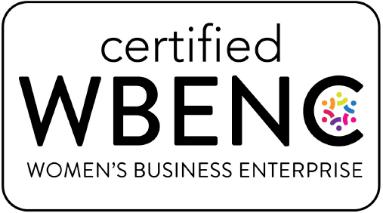Authored by:

Justin R. Muehlmeyer
Patent Attorney
All Posts by Justin
Many states operate under at-will or right-to-work laws, which place few limits on whether or how employers may dismiss workers – and in turn allow individuals to leave their positions with few or no repercussions. This may encourage some employers to skip the expense and effort in having employees sign employment agreements. However, if an employer cares about its intellectual property (IP) at all, it should and really must have a written agreement in place addressing ownership of IP. Understanding how intellectual property works in employment situations can make or break a company in which intellectual property is a key asset.
What Is an “Employee” and an Employment Agreement?
An employment agreement is a written document that outlines the terms of employment between an employer and an employee. The word “employee” is a legal term that may, under law, carry with it certain obligations of an employer to provide certain benefits that it would not need to provide an independent contractor.
There are various factors courts and the Internal Revenue Services apply in determining whether a hired person is an “employee” or “independent contractor”. No one factor is determinative. The determination is ambiguous and difficult to predict. In the face of such ambiguity, you want to be sure to have an agreement that clearly establishes who owns the IP, regardless of what the hired person’s status may actually be.
Why Does the Status of an Employee matter for Intellectual Property?
Whether the hired person is an employee or independent contractor has ramifications for IP ownership. For example, an employer, by law set forth in the U.S. Copyright Act, automatically owns the copyrights an “employee” authors within the scope of their employment. However, an independent contractor retains ownership of all that they create for an employer, even if they are paid and instructed to do so. This is typically the biggest mistake employers of independent contractors make – little do they know, the employer does not own what their independent contractors created for them (even if the employer paid them) unless such ownership is specifically granted in writing.
For patentable inventions, the employer’s ownership of an employee’s inventions is less certain: U.S. Patent Law does not guarantee the employer’s ownership of employee invention, such being dealt with in much more ambiguous doctrines of courts applying various factors that are difficult to predict with certainty.
As to trade secrets, if the employee who is given access to such information is not obligated to keep company information confidential, the employer may have difficulties obtaining trade secret status for such information in court when the employer tries to enforce against misappropriation of the information.
Again, all the reason to address IP ownership in writing!
What Should an Employment Agreement Address?
Every employer should consider addressing the following in a written agreement with whoever they are hiring that has access to any information that may be key, important or valuable to the business:
- Assignment of any and all works of authorship, inventions and all other information, and the intellectual property therein, to the employer. The assignment should say “hereby assigns” all such information, which is somewhat of a magical legal term. The assignment should elaborate as to the types of information and clarify the scope.
- Confidentiality obligations for certain non-public information.
- Survival provisions stating that confidentiality survives termination of the employment.
If the company is a “tech” company that depends on its own developments in any way, the above provisions are a must!
If an employer is particularly concerned about employees taking what they learned or developed from working with the employer elsewhere after they leave, the employer should consider non-compete provisions as well. There are complexities enforcing non-competes depending on the state in which they would be enforced, the industry of employment, the territory of the non-compete, and the time period it applies, so such should be prepared with an attorney’s review.
Employment Agreements Bring Clarity to the Relationship.
When employees leave an employer, they tend to think they can keep for themselves what they created under their former employer. Most employees don’t know the law, so unless it is in writing in their employment agreement, they may either mistakenly or accurately believe they own what the created under the employment. Either way, you don’t want to leave IP ownership to an employee’s imagination!
Employment agreements create a clear, written record of mutually agreed terms between companies and employees or contractors. These written records can:
- make all the difference in enforcing against employees who take the intellectual property with them when they leave employment;
- support an employer against adverse legal actions for wrongful termination;
- protect employers against an unfair disadvantage created by former employees violating non-compete provisions; and
- make it clear that a position or assignment is subject to at-will dismissal at any time, avoiding awkward and time consuming employee exit disputes.
Contact Peacock Law today to strategize how best to protect your intellectual property. You may reach out to Justin Muehlmeyer at 505-998-6117 or JRM@PeacockLaw.com to assist.


